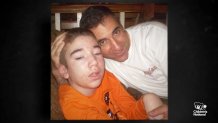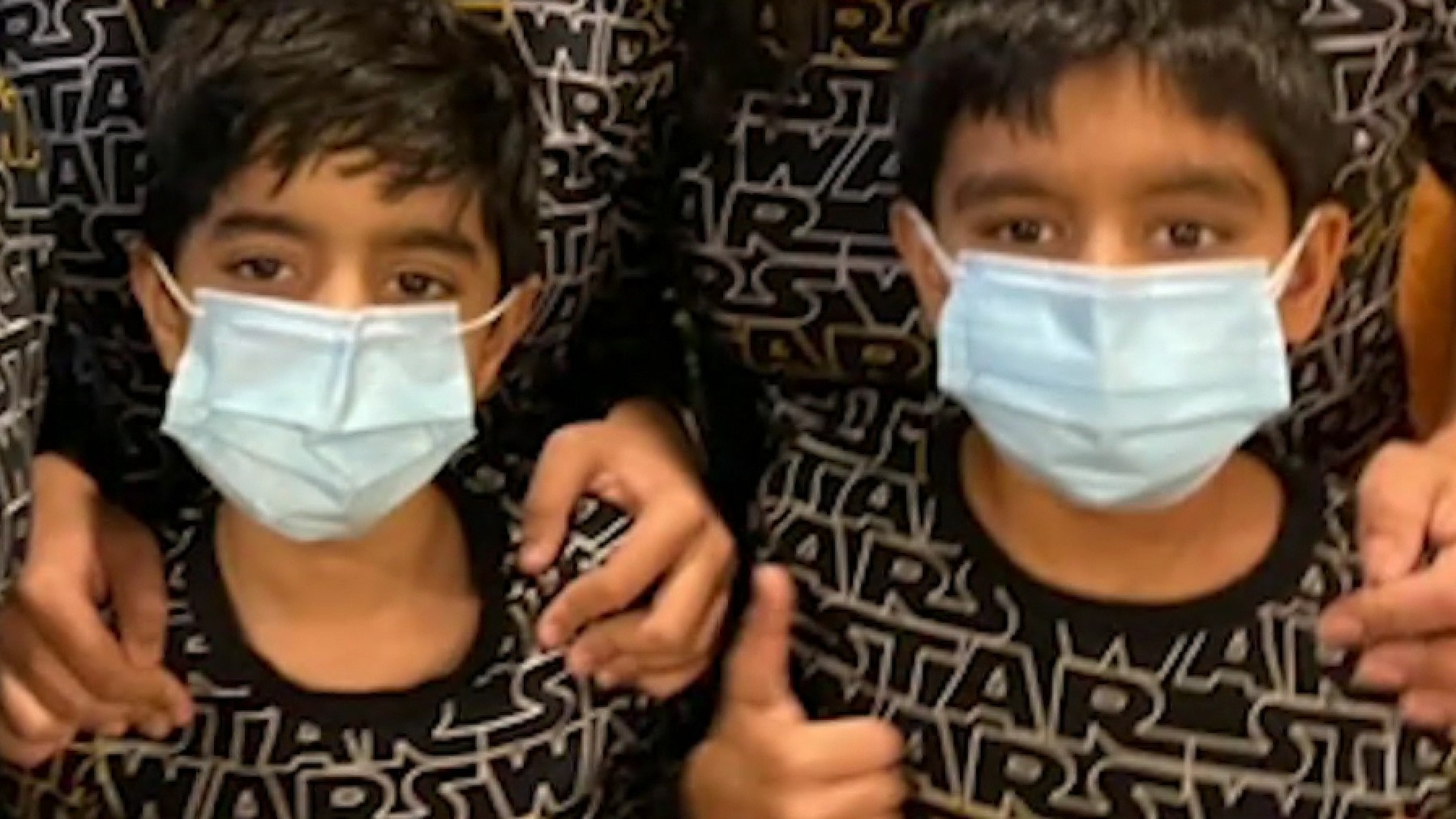A brother and sister diagnosed with the same rare disease had very different outcomes because of a simple test.
As a toddler in Virginia, Stephen Monaco was a typical boy who loved playing with his two older brothers.
“He was always smiling,” said his mom, Jana Monaco. “Even when he was doing something that he shouldn’t have been doing, he’d kind of look at you with a little grin.”

We've got the news you need to know to start your day. Sign up for the First & 4Most morning newsletter — delivered to your inbox daily. >Sign up here.
Happy and healthy until age 3, when his mom thought he had a stomach bug and gave him medicine before bed. Everything changed the next morning.
“When I opened the door to his room, that's when I opened the door to a whole new life,” she said.
She found Stephen unresponsive in his crib with a profound odor coming from his room — a telltale sign of a metabolic condition she had no idea of at the time.

Her little boy was rushed to the hospital for a flurry of tests and eventually a diagnosis: isovaleric acidemia (IVA) — a rare inherited disorder where the body can't break down certain proteins. It effects one in every 250,000 children and can be deadly if not caught early.
“They said, ‘Well, if he makes it through the weekend, he won't be the same little boy you knew and loved,’” Monaco said.
“That was tough to swallow, because we thought, you know, just three days ago he was playing with his toys and you think he's perfectly healthy, and then you think I did all the right things, how can we be at this place?” she said.

Expecting a baby sister
As the Monaco family adjusted to their new normal, life threw another curveball.
“It was six months after Stephen's crisis that I found out I was expecting Caroline,” Monaco said.
“The first thing that I did was call the geneticist here, who was seeing Stephen at that time, and saying, ‘This baby has IVA, as well.’ And he said, ‘Great, we'll just start planning for her now,’" she said. "And that's exactly what they did.”
“Instead of waiting for a catastrophic event to make the diagnosis, we were able to start her treatment, her special diet, her medications within days of her birth,” said Dr. Debra Regier, who heads the Rare Disease Institute at Children’s National Hospital. “What that meant is we've been able to protect her because we had that information.”
Regier’s department — the first and only facility of its kind in the D.C. area and one of only 40 rare disease institutes in the country — offers a lifeline for families.
“This idea of how do we come around a rare disease family and make sure they have what they need?” she said. “Everything from an endocrinologist, an orthopedic doctor, a geneticist, a metabolist to a social worker to wheelchair access, whatever it is, how do we kind of coordinate that all so that they have their best outcomes?”
Now 21, Caroline has no limitations.

Mother advocates for screening
Determined to turn her family's pain into purpose, Monaco became an advocate.
“The doctors explained, ‘Remember that little heel prick test that your babies got? Well, that's what tests for these conditions,’” she said. “However, IVA was not on the newborn screening panel when Stephen was born.”
“This could have all been prevented had he been screened,” she said.
She joined forces with lawmakers and nonprofits, sharing her story, and she helped get legislation passed. Now every baby born in D.C., Maryland and Virginia is screened for IVA.
“We were kind of labeled the poster family for newborn screening because we had two children, same condition, two very different outcomes, and that just paved the way to making the necessary changes here at the state level and the national level,” Monaco said.
“I will get a parent connect with me and say, ‘I saw Stephen's story. I'm so scared.’ I was like, ‘No, don't be scared. Read Caroline's story.’”
IVA is a lifelong condition that can be managed with a special diet and medication.
Newborn screening varies by state. In 1997, when Stephen was born, Virginia only tested for eight conditions. It now tests for up to 35, including IVA. Maryland and D.C. test for IVA in addition to more than 60 other conditions.
News4 sends breaking news stories by email. Go here to sign up to get breaking news alerts in your inbox.



